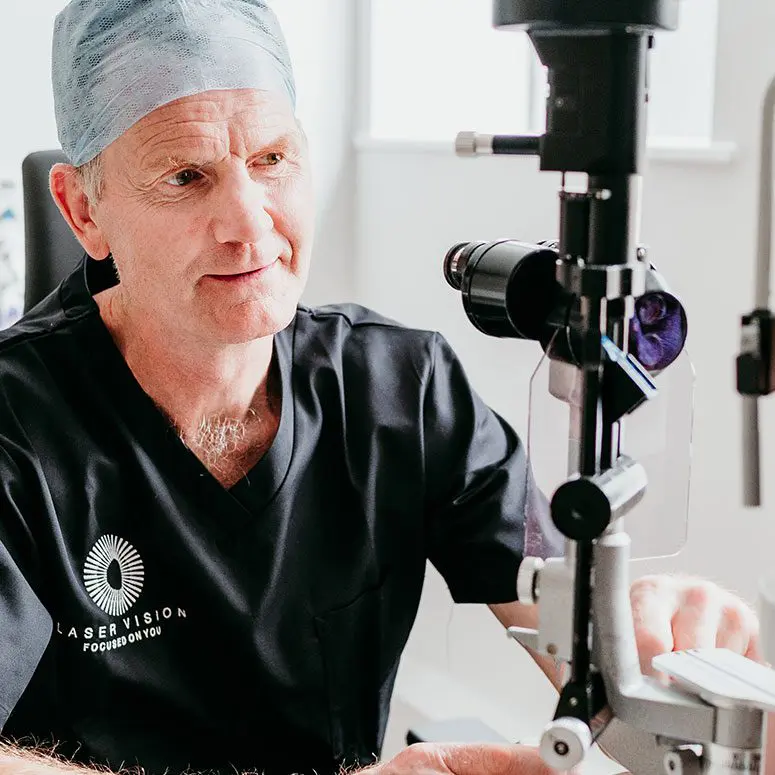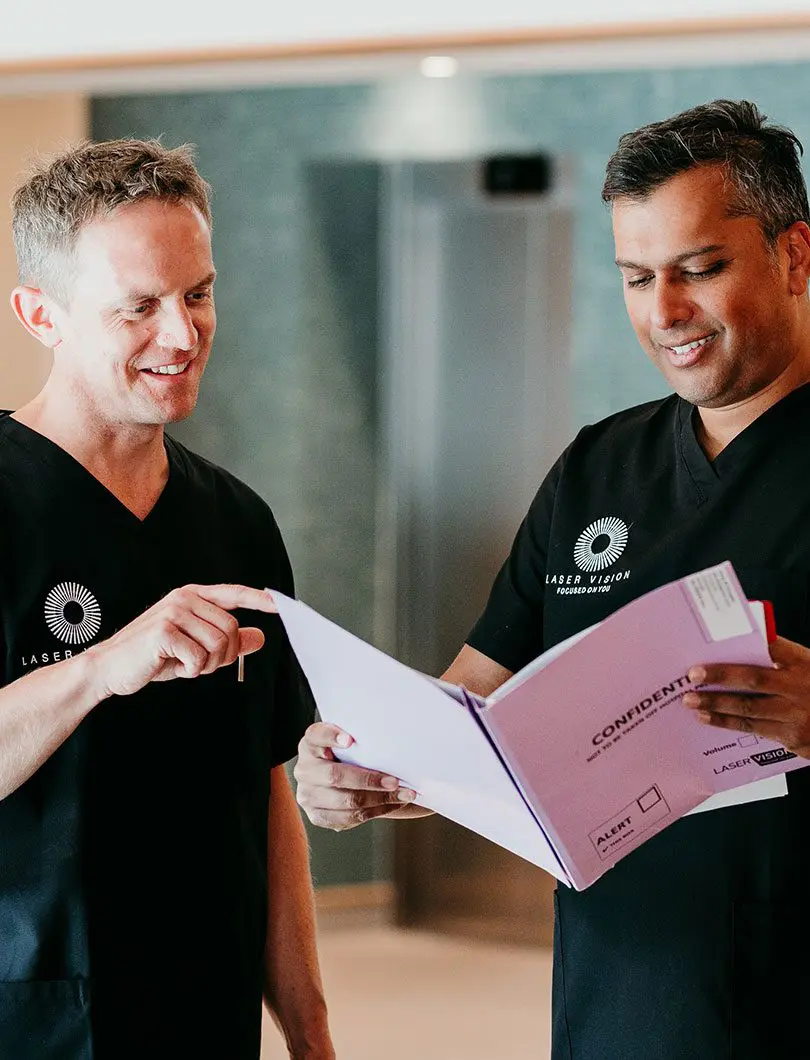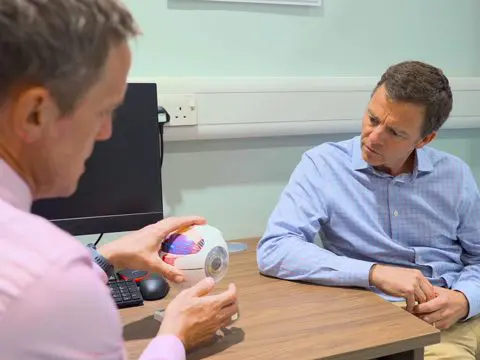- Lens Surgery

Refractive Lens Exchange (RLE)

- Treatment

- Lens Surgery
Refractive Lens Exchange (RLE)
Refractive Lens Exchange – RLE – is a particularly good choice for patients over the age of 45 years when laser eye surgery is not always the best option. Often at this stage, the natural lens starts to lose its functionality and reading glasses are required as well as distance glasses. Whilst laser surgery may still be a suitable option, the longevity of laser treatment is not predictable as the lens starts to change.
What is RLE Surgery?
RLE Surgery- involves the replacement of the natural lens in the eye, with a new mono-focal, multifocal or pseudo-accommodative intraocular lens implant (IOL).
Accurate measurements of the eye taken prior to lens replacement surgery allow for a bespoke, customised intraocular lens (IOL) to be implanted which can correct for any degree of long or short-sightedness and astigmatism so that clear distance vision without glasses is a reality. With the choice of premium lens implants, achieving excellent reading vision without glasses may be achieved with refractive lens exchange surgery allowing for true spectacle independence
In simple terms, this means that each patient benefits from new, personalised lenses, which provide the best and most accurate correction for their vision.

Very subtle differences in lens design mean that some perform better in certain circumstances than others and that is why accurate measurements and an in-depth consultation is needed prior to refractive lens surgery to ascertain which lenses or combination of lenses best suit you and your lifestyle
There are several types of lens and these are namely; monofocal, multifocal (also called bifocal), accommodative, toric for the correction of astigmatism and phakic lenses. Sometimes combining lenses is necessary and it may even be necessary to have lenses specially made. We use all lenses including
Very subtle differences in lens design mean that some perform better in certain circumstances than others and that is why accurate measurements and an in-depth consultation is needed prior to refractive lens surgery to ascertain which lenses or combination of lenses best suit you and your lifestyle
There are several types of lens and these are namely; monofocal, multifocal (also called bifocal), accommodative, toric for the correction of astigmatism and phakic lenses. Sometimes combining lenses is necessary and it may even be necessary to have lenses specially made. We use all lenses including


What happens during refreactive lens exchange surgery?
- 1.Local anaesthetic eye drops are applied to both eyes
- 2.An instrument is gently positioned to hold your eyelids open
- 3.Lens replacement surgery is then fundamentally the same as cataract surgery with the option of standard or femtosecond laser assisted surgery
- 4.Your new intraocular lens is carefully positioned without the need for stitches



























